Let’s talk about menstruation – A simple way to eradicate period-related absences in a Ugandan school
Three out of four girls in Uganda miss school because they are menstruating. At Bukere secondary school, the problem has been solved by raising awareness about menstruation among both girls and boys.
Text: Elisa Rimaila
Photos: Antti Yrjönen
THE EXCITEMENT of over a hundred teenagers combined with the glow of an equatorial afternoon have stirred up the air in the classroom so thick you could almost bottle it. The youngsters sit cramped in their desks, squealingas teacher Jolly Kyogabirwe begins a lesson on reproductive health and sexual rights at Bukere secondary school in central Uganda.
Now let’s talk about menstruation! The rumble slowly calms down..
“Menstruation is not an illness that should make you stay home and out of school,” says Kyogabirwe.
In the front row, a few girls look at each other. In the back, the boys lean forward with interest, letting the teacher continue.
“If your period starts during the school day, the school has disposable sanitary towels for emergencies. We will help you so that you can stay in school despite your period,” teacher Kyogabirwe addresses the girls.
IN REFUGEE SETTLEMENTS in particular, menstrual absenteeism is a real threat to education. Many girls are absent from school for several days each month.
Bukere secondary school is fighting absenteeism by organising menstrual hygiene lessons and distributing a bag of sanitary towels, soap and underwear to girls.
Teacher Kyogabirwe goes through the signs that the body gives before menstruation starts and reminds you to be aware of your menstrual cycle.
The boys in the back seat are keen to ask questions.
“Why are the pads different sizes – and that one so huge?”
“How long can you use one sanitary towel?”
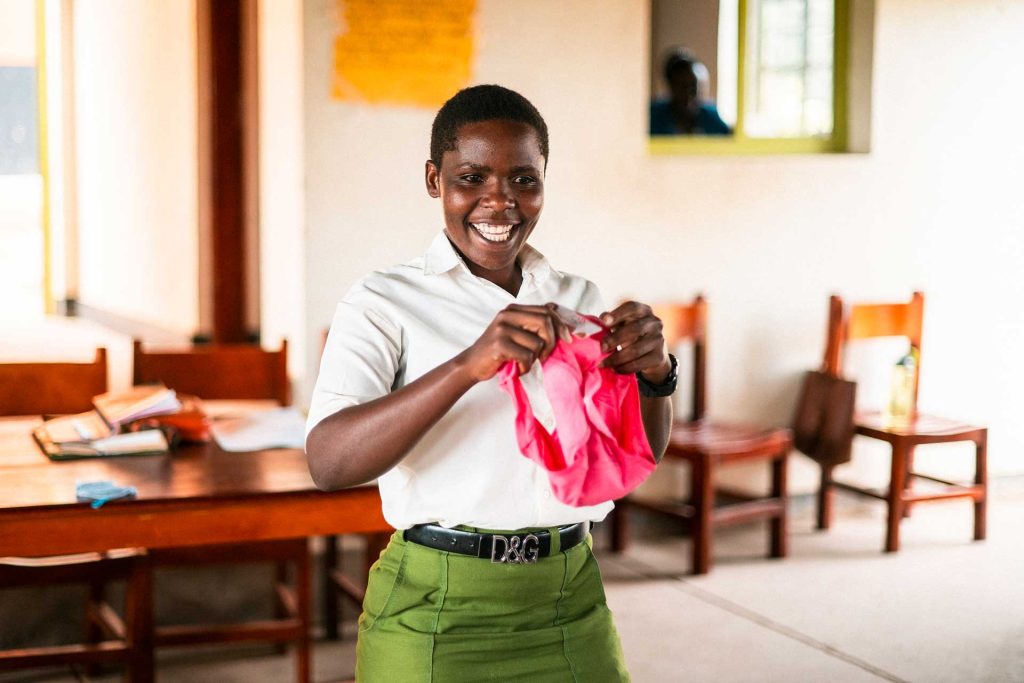
Reusable pads save money
At the end of the lesson, girls and boys can talk freely.
“It’s interesting to know how things work. Some of us boys didn’t know anything before,” says Emmanuel Nsengimana, 20.
“It’s good to have a conversation together,” continues Best Kemigisa, 20.
The lesson makes Manzi Biraguma, 16, wonder whether it would be possible to make a business out of making reusable pads. The boy’s comment makes the girls laugh, but it’s actually not a bad idea, confirms Sonia Kyasiimire, an education specialist at the Finn Church Aid (FCA) office in Uganda.
“If we could get more funding, we could organise a workshop to learn how to make reusable pads for sale. The training could be combined with vocational studies, for example,” says Kyasiimire.
The life cycle of a single reusable pad is about a year, making them a better environmental alternative to disposable shelters. If girls made their own pads, they could also save money.
A five-piece package of reusable pads costs 25,000 Ugandan shillings (six euros), while disposable pads cost girls between 5.000 and 10,000 shillings (about 1.5-2.5 euros) per month.
In the refugee area, it is a significant amount. The cost of one package of disposable sanitary towels is equivalent to about half of the cash grant given to qualifying families by UNHCR each month.
“Many parents have not been educated about menstrual hygiene. It can be difficult for them to understand why girls should be provided with separate menstrual protection,” says Manzi Biraguma.
The girls nod. Lack of knowledge can lead to discrimination and exclusion from everyday activities such as socially important religious gatherings.
“There are communities here that may believe that girls are ‘unclean’ during menstruation or that they are somehow harmful,” says Patience Kabarokore, 17.
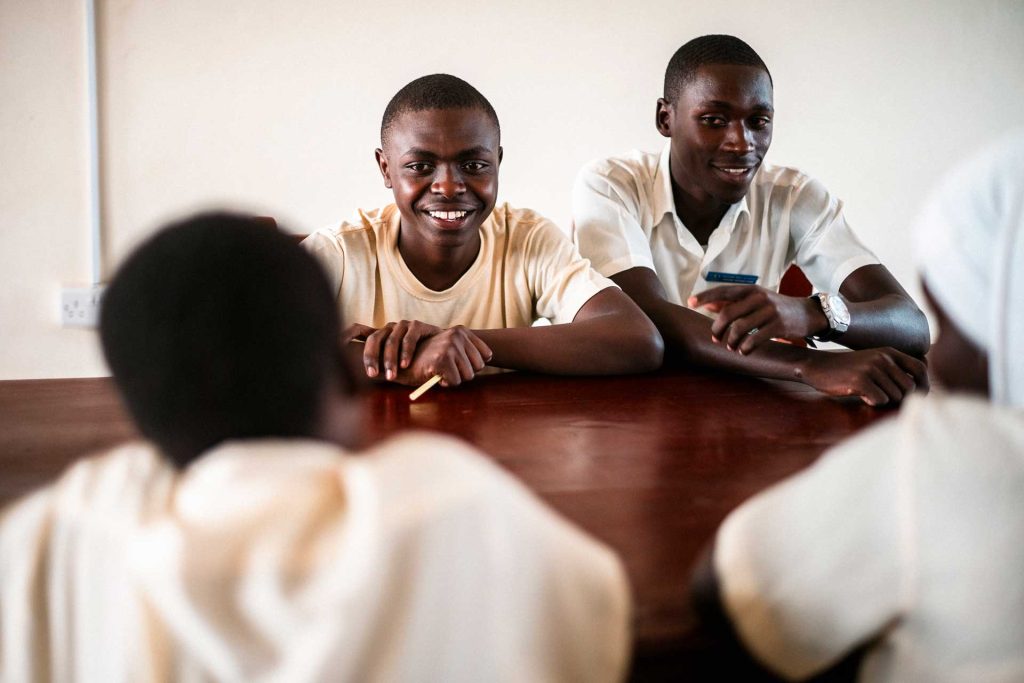
Emmanuel Nsengimana points out that girls themselves can avoid being stigmatised by taking the management of their menstrual hygiene into their own hands.
“Boys in particular may want to sit somewhere other than next to a girl who doesn’t have proper protection. They might be embarrassed. I’m serious, there are boys like that!”
The comment leads to a debate between girls and boys about whether menstruation is something to be ashamed of.
“Menses are part of normal life. The fact that you are menstruating just means that you are normal,” says Best Kemigisa.
“Sometimes it is difficult to participate in the joy and activities of others during menstruation. Especially if you’re not feeling well. Then I feel ashamed,” defends Fatumah Kenganzi, 17.
She says that as a Muslim she is not allowed to pray or fast during her periods.
“It’s quite understandable. Even a prayer mat can get dirty,” she reflects.
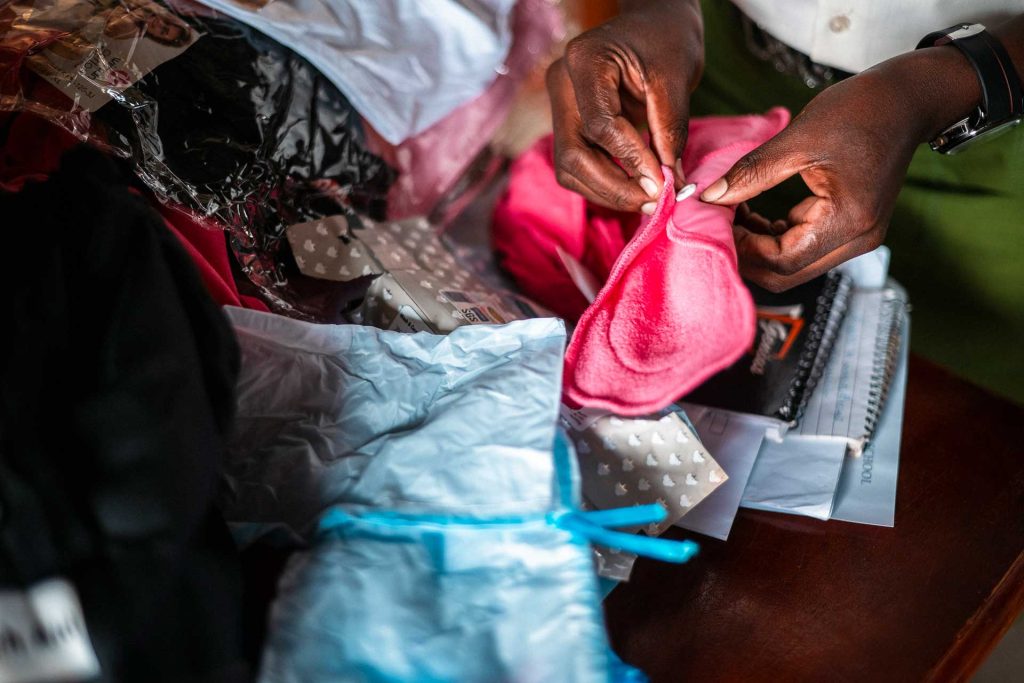
Lack of sanitary towels robs girls their education
In Bukere, every young person knows someone who has missed school because of their period. And no wonder, because according to Uganda’s Ministry of Education 2020 data, three out of four school-age girls miss 2-3 school days a month due to menstruation. According to the same statistics, up to 65% of girls and women in Uganda feel unable to afford adequate menstrual protection.
“Girls would certainly like to use disposable pads, but they are not very accessible here,” says Sonia Kyasiimire, referring to the high price of sanitary towels.
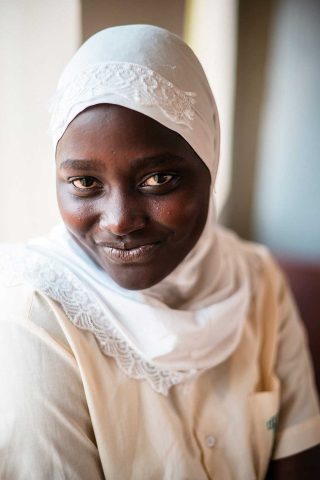
FCA’s menstrual hygiene work involves more than just handing out sanitary pads and teaching lessons. At Bukere secondary school, changing rooms and water points have been built next to the toilets to make girls’ daily lives easier. According to 2020 statistics, only 60% of girls and women reported that they had regular access to water for washing and safe, sheltered places for changing.
Fatumah Kenganzi is the only girl who would prefer to use disposable protection if she had the choice. But her life with reusable pads is made easier by the fact that she lives in a school dormitory.
“The school has water for washing and shelter. At the primary school I went to, if there was an accident, you had to go home in the middle of the day to wash.”
The situations where girls are most nervous are when their periods start unexpectedly in the middle of the school day. The school day can become embarrassing, especially because of boys’ behaviour.
“They mock it, calling it a ‘blood skirt’, and everyone hears about it,” says Patience Kabarokore.
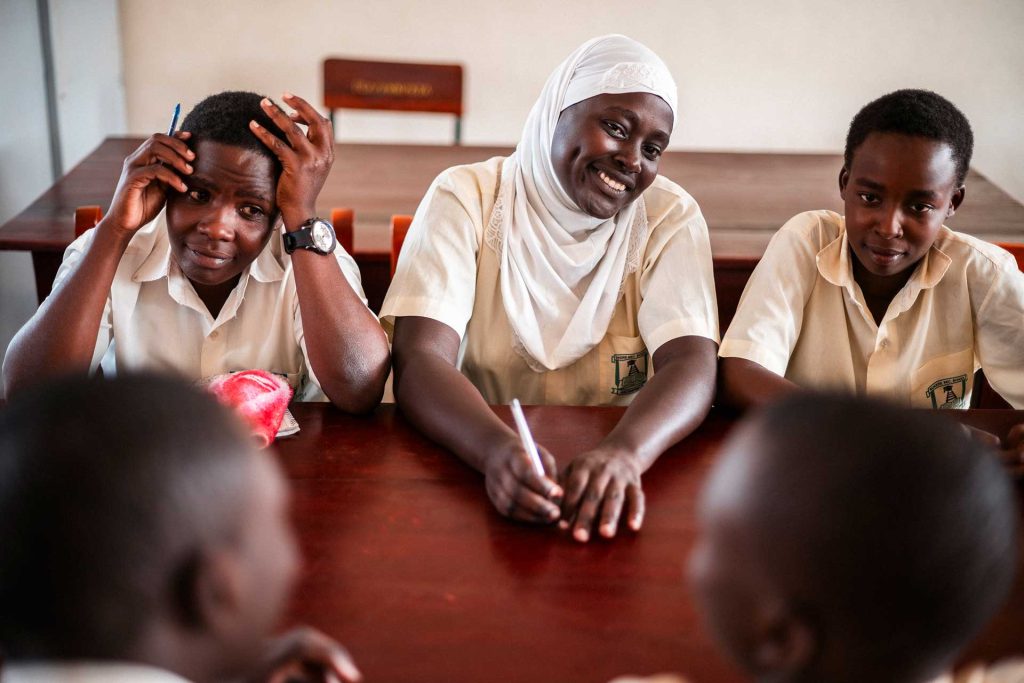
The comment makes the boys look at each other.
“I think we do it out of ignorance. It boggles the mind to even think about where the blood comes. We boys are sensitive,” Biraguma defends himself.
“Girls can talk openly about these issues. Come and tell us if you need help. We will help,” Nsengimana continues.
The last sentence makes all three girls burst out laughing. Patience Kabakore, however, is grateful that the boys are now getting information through school.
“I think boys are genuinely interested in these things. Now they have the opportunity to participate and learn. Until a few years ago, they were expelled from class when we started talking about menstruation.”
How will boys use the information they learn about menstrual hygiene at school?
“If I had a wife and she needed help with washing the pads, of course I’d help,” says Biraguma, after a moment’s thought.
The girls don’t believe him.
“No way! You don’t even know what menstrual blood smells like,” challenges Fatumah Kenganzi.
“Yes. I’m at least going to offer to help my wife when I have one some day. My wife is my responsibility. Of course I would,” Biraguma promises.
Menstrual Hygiene Day is an annual awareness day on May 28 to highlight the importance of good menstrual hygiene management at a global level.